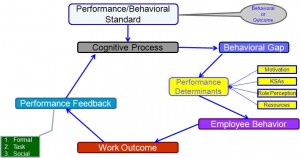Performance Management System (PMS)- The introduction of Performance Management System (PMS) overshadows many a reform initiative in the Public Sector. In this Chapter, we elaborate on the general philosophy of the Performance Management System as enunciated in successive PRB Reports since 1993; the implementation problems as revealed by our survey; the need to simplify the PMS process; the role of the Ministry of Civil Service and Administrative Reforms (MCSAR); the Development Focus of Performance Management; the Performance Management Measurement System and the Reporting System to Public Service Commission, so that necessary steps are taken to sustain and build on the success so far achieved.
The performance management system includes the following components:
- Performance Planning: Performance planning is the first crucial component of any performance management process which forms the basis of performance appraisals. Performance planning is jointly done by the appraisee and also the reviewee in the beginning of a performance session. During this period, the employees decide upon the targets and the key performance areas which can be performed over a year within the performance budget., which is finalized after a mutual agreement between the reporting officer and the employee.
- Performance Appraisal and Reviewing: The appraisals are normally performed twice in a year in an organization in the form of mid reviews and annual reviews which is held in the end of the financial year. In this process, the appraisee first offers the self filled up ratings in the self-appraisal form and also describes his/her achievements over a period of time in quantifiable terms. After the self-appraisal, the final ratings are provided by the appraiser for the quantifiable and measurable achievements of the employee being appraised. The entire process of review seeks an active participation of both the employee and the appraiser for analyzing the causes of loopholes in the performance and how it can be overcome. This has been discussed in the performance feedback section.
- Feedback on the Performance followed by personal counseling and performance facilitation: Feedback and counseling is given a lot of importance in the performance management process. This is the stage in which the employee acquires awareness from the appraiser about the areas of improvements and also information on whether the employee is contributing the expected levels of performance or not. The employee receives an open and a very transparent feedback and along with this the training and development needs of the employee is also identified. The appraiser adopts all the possible steps to ensure that the employee meets the expected outcomes for an organization through effective personal counseling and guidance, mentoring and representing the employee in training programmes which develop the competencies and improve the overall productivity.
- Rewarding good performance: This is a very vital component as it will determine the work motivation of an employee. During this stage, an employee is publicly recognized for good performance and is rewarded. This stage is very sensitive for an employee as this may have a direct influence on the self esteem and achievement orientation. Any contributions duly recognized by an organization helps an employee in coping up with the failures successfully and satisfies the need for affection.
- Performance Improvement Plans: In this stage, fresh set of goals are established for an employee and new deadline is provided for accomplishing those objectives. The employee is clearly communicated about the areas in which the employee is expected to improve and a stipulated deadline is also assigned within which the employee must show this improvement. This plan is jointly developed by the appraisee and the appraiser and is mutually approved.
Apply for Compensation and Benefits Certification Now!!
http://www.vskills.in/certification/Certified-Compensation-and-Benefits-Manager



